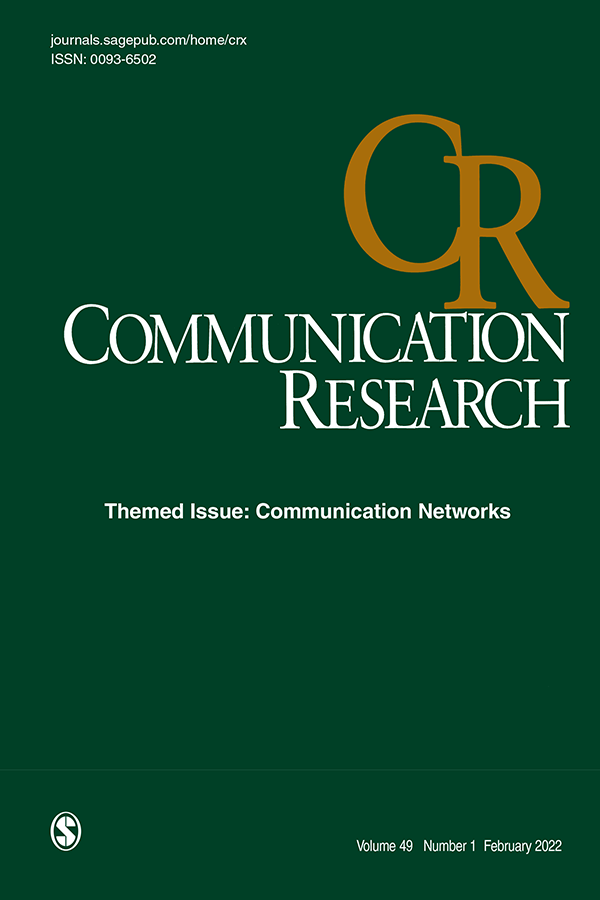Why Do Users Stop Pleasurable Media Experiences? The Dynamics of Media Experiences and Their Impact on Media Disengagement
IF 3.2
1区 文学
Q1 COMMUNICATION
引用次数: 0
Abstract
Given the vast amount of permanently available entertainment content and the high pleasure that viewers derive from it, the question of when and why users disengage from a media entertainment viewing session becomes more pressing. We argue in this paper that communication theories lack a conceptualization of the disengagement part of the communication process. The study presents a novel dynamic view on media use, and argues that specific processes that occur during media exposure contribute to its termination. The assumptions of the theoretical framework are tested with an event-based experience sampling study during TV series viewing sessions among 89 participants (1,952 answered surveys). The findings show that negative and positive response states evolve (partly) independently of each other in the course of entertainment viewing sessions: Despite an increase in negative experiences of goal conflict, guilt, and fatigue, individuals’ level of enjoyment remained stable during a viewing session. These results indicate that negative responses do not necessarily interfere with the experience of enjoyment. The level of enjoyment was the strongest predictor for whether someone stopped a viewing session indicating that hedonic experiences might overrule rational decisions to stop due to being fatigued or having other things to do.用户为何停止愉快的媒体体验?媒体体验的动力及其对脱离媒体的影响
鉴于娱乐内容数量庞大且可长期获取,而观众又能从中获得极高的愉悦感,用户何时以及为何会从媒体娱乐节目的观看过程中脱离出来的问题变得更加紧迫。本文认为,传播理论缺乏对传播过程中脱离部分的概念化。本研究对媒体使用提出了一种新颖的动态观点,并认为在媒体接触过程中发生的特定过程促成了媒体使用的终止。通过对 89 名参与者(1,952 人回答了调查问卷)在观看电视剧时进行的基于事件的经验抽样研究,对理论框架的假设进行了检验。研究结果表明,在娱乐节目的观看过程中,消极和积极的反应状态(部分)是相互独立发展的:尽管目标冲突、负罪感和疲劳等负面体验有所增加,但在观看过程中,个人的享受水平保持稳定。这些结果表明,负面反应并不一定会干扰享受体验。享受水平是是否停止观看的最强预测因素,这表明享乐体验可能会推翻因疲劳或有其他事情要做而停止观看的理性决定。
本文章由计算机程序翻译,如有差异,请以英文原文为准。
求助全文
约1分钟内获得全文
求助全文
来源期刊

Communication Research
COMMUNICATION-
CiteScore
17.10
自引率
0.00%
发文量
20
期刊介绍:
Empirical research in communication began in the 20th century, and there are more researchers pursuing answers to communication questions today than at any other time. The editorial goal of Communication Research is to offer a special opportunity for reflection and change in the new millennium. To qualify for publication, research should, first, be explicitly tied to some form of communication; second, be theoretically driven with results that inform theory; third, use the most rigorous empirical methods; and fourth, be directly linked to the most important problems and issues facing humankind. Critieria do not privilege any particular context; indeed, we believe that the key problems facing humankind occur in close relationships, groups, organiations, and cultures.
 求助内容:
求助内容: 应助结果提醒方式:
应助结果提醒方式:


